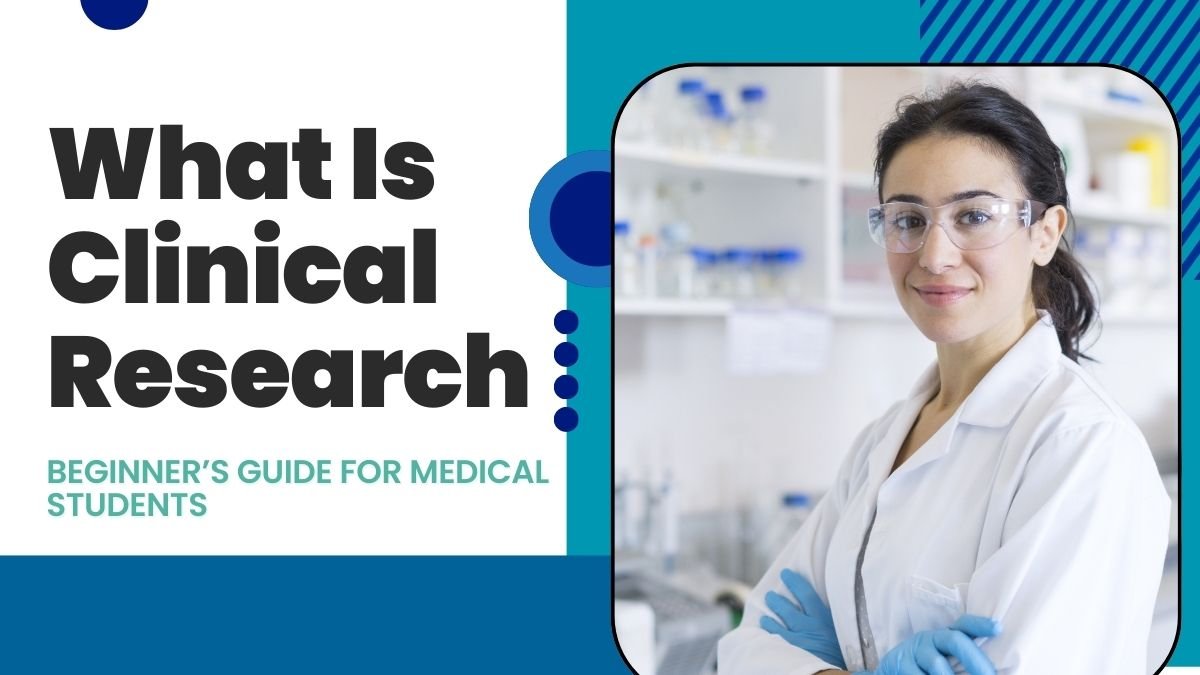Have you ever wondered how new medicines reach your local pharmacy or how a new life-saving therapy suddenly becomes a reality? Behind this lies a fascinating and demanding field called clinical research. It’s a field that directly connects science and humanity. But many people are confused by this term, often explained in complex language and medical terminology. Let’s understand it in simple terms today.
Why is clinical research important?
Clinical research is the backbone of the medical world. It’s the reason we’ve found effective vaccines, reliable medications for chronic diseases like diabetes and blood pressure, and even common headache tablets. Without clinical research, healthcare services would stagnate, and many diseases would go untreated.
It’s not limited to doctors. It also involves scientists, data analysts, project managers, nurses, pharmacists, and even regulatory experts. In other words, it’s a teamwork process that involves diverse skills and professionals.
The Journey of Clinical Research: From Idea to Innovation
The primary purpose of clinical research is to understand how a new drug, medical device, or therapy affects human health. To understand its journey, we can divide it into stages:
- Preclinical Phase—Before human trials, drugs and therapies are tested in the laboratory and on animals to determine their safety and preliminary efficacy.
- Clinical Trial Phase – This phase consists of four stages:
- Phase I: Testing the drug’s safety and appropriate dosage on a small number of healthy volunteers.
- Phase II: Studying the drug’s effectiveness and side effects on a larger group.
- Phase III: Large-scale trials involving thousands of patients to confirm efficacy and compare the drug to existing treatments.
- Phase IV: Monitoring the drug’s long-term effects and potential risks after it is marketed.
- Regulatory Approval—The results of these trials are sent to government agencies (such as the US FDA or UK MHRA). Only after their approval does the drug or therapy reach the public.
Who is involved in clinical research?
There are several key players in this massive process:
- Sponsors: Usually pharmaceutical companies or research institutions that fund the project.
- Principal Investigators and Study Teams: Qualified doctors and their teams (nurses, pharmacists, and coordinators) who conduct the research directly at the trial site.
- Contract Research Organizations (CROs): These companies help organize the research.
- Regulatory Authorities: These government agencies ensure that trials are safe and meet international standards.
- Human Participants: Patients or healthy volunteers who voluntarily participate in the development of new drugs or therapies. They are the ones who make research successful.
The Human Aspect: The True Face of Clinical Research
To consider a recent example, the rapid development of the COVID-19 vaccine is a triumph not only of science but also of human cooperation. Scientists, doctors, and volunteers from around the world worked tirelessly, making the vaccine possible on time.
But this isn’t limited to pandemics. Millions of people suffering from rare diseases pin their hopes on clinical trials. Every new discovery is not just a medicine but a ray of hope for a family.
Opportunities for Medical Students
If you’re a medical student, clinical research can open up countless opportunities for you. You can contribute not only as a doctor but also in roles like data management, project management, regulatory affairs, medical writing, or research coordination.
To pursue a career in this field, you can pursue certification courses like ICH-GCP (Good Clinical Practice). This will not only strengthen your resume but also demonstrate your commitment to research.
Conclusion
Clinical research is not just a career but a commitment to improving lives. It’s a bridge between science and humanity, shaping society with every new treatment and discovery.
If you’re a medical student, understanding this field will not only keep you confined to books but also give you the opportunity to be part of a larger, global effort. Remember, every medicine and every treatment begins with a question and curiosity—and that curiosity can make you the health leaders of tomorrow.
